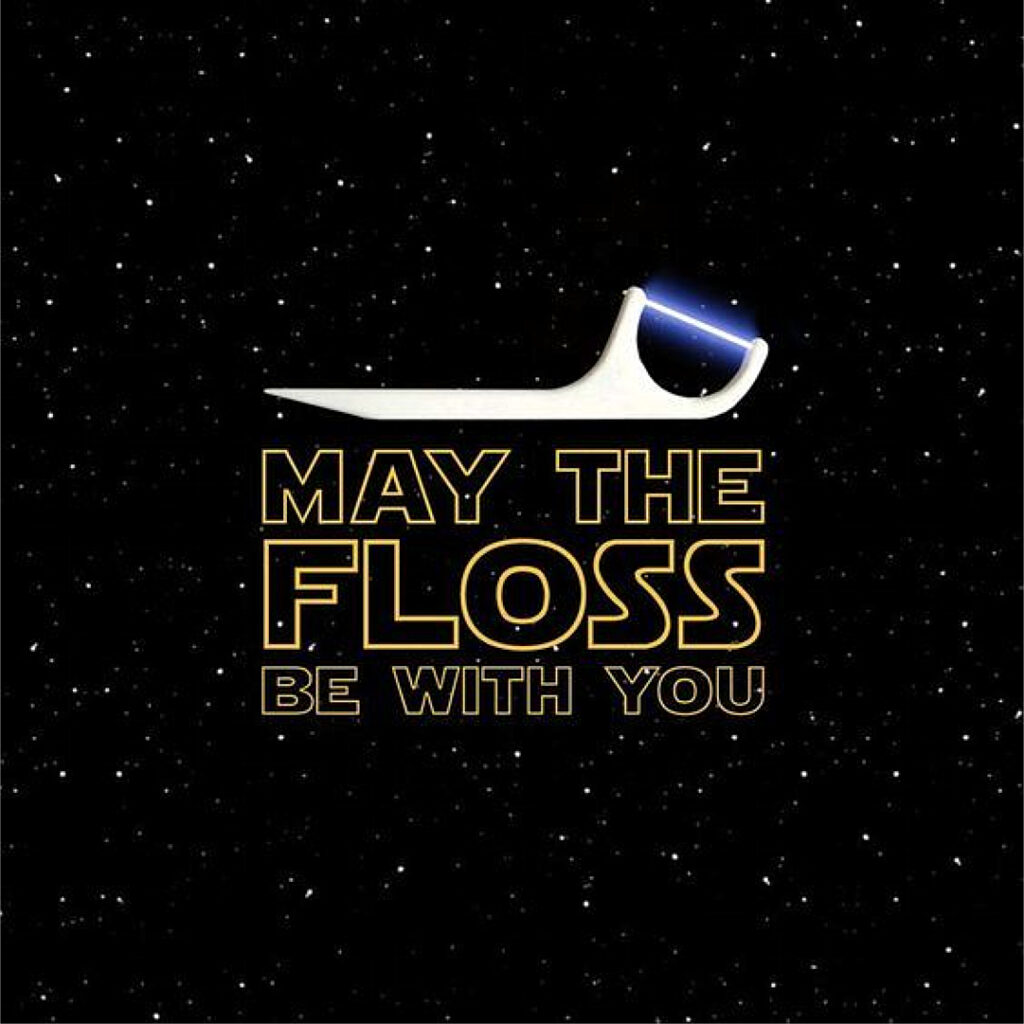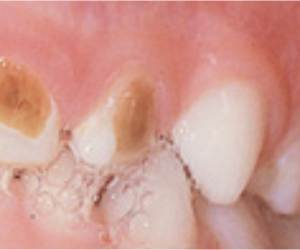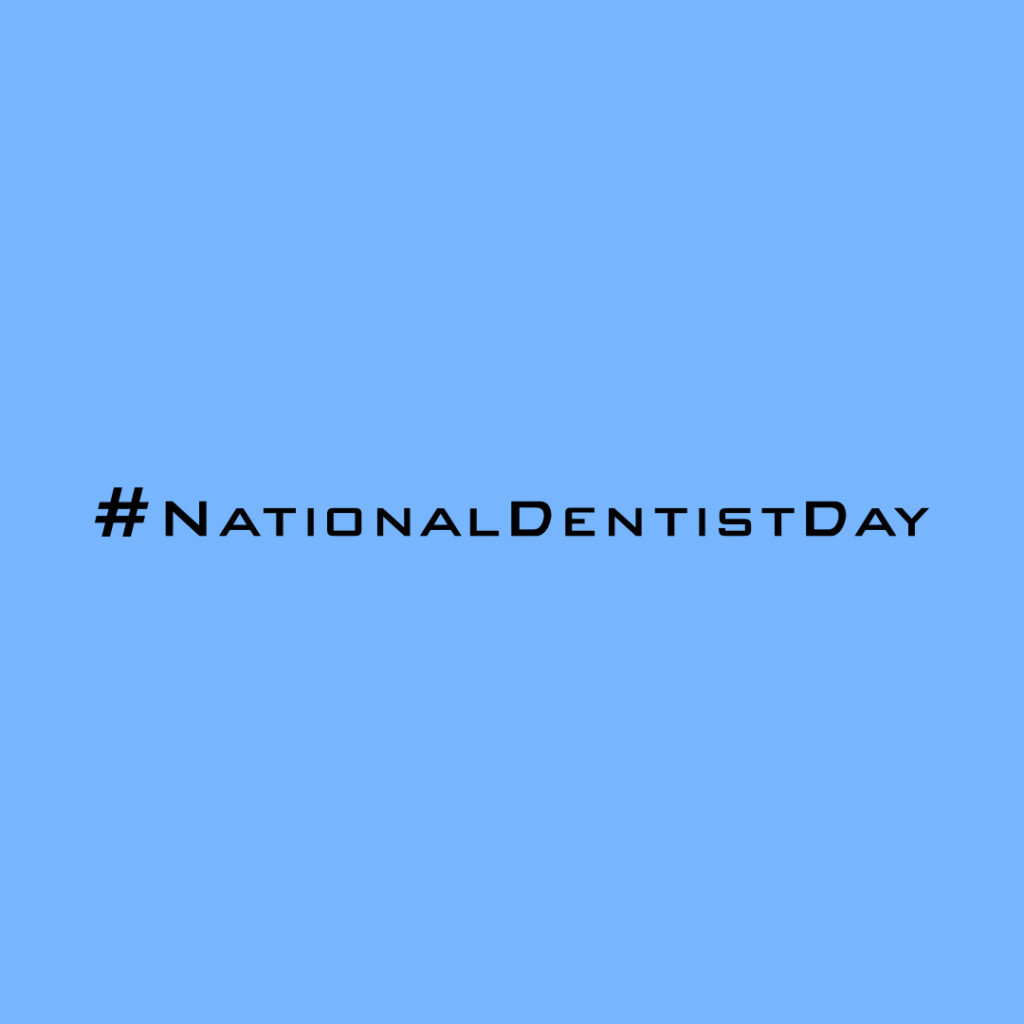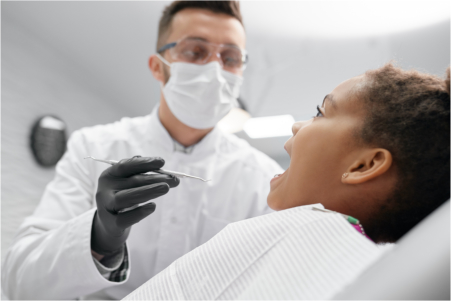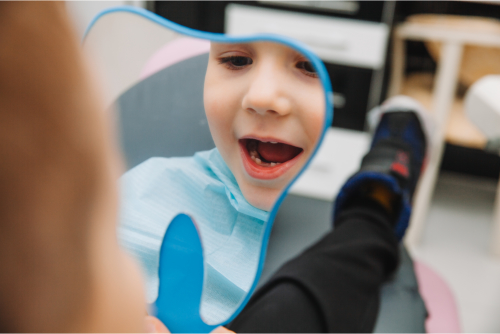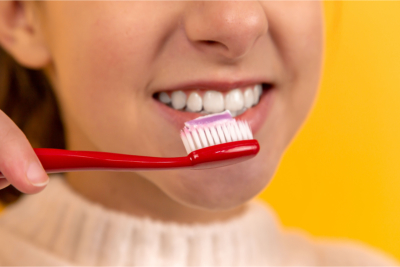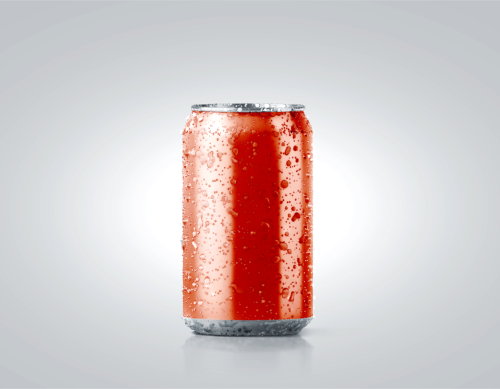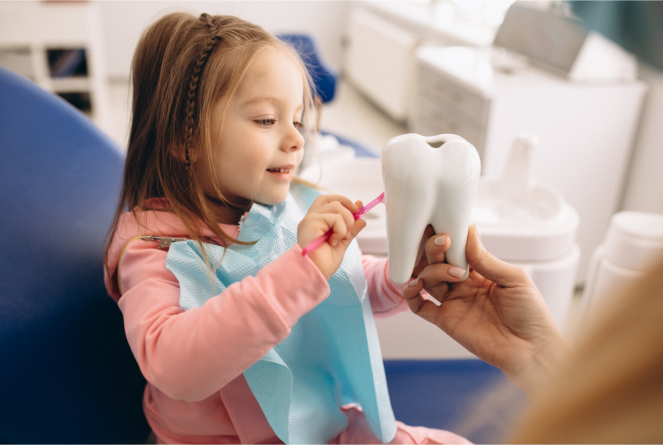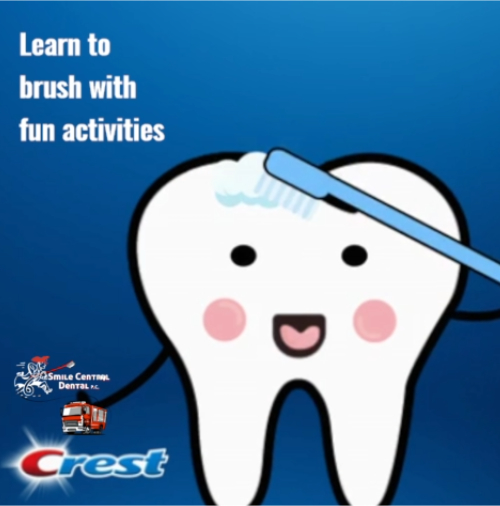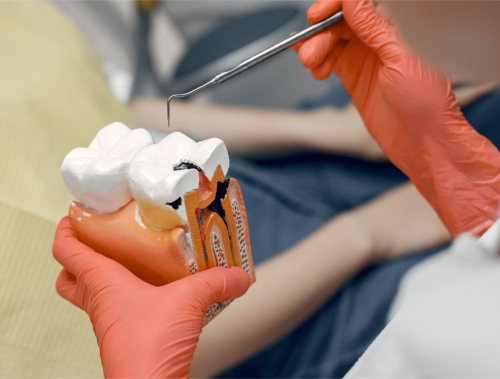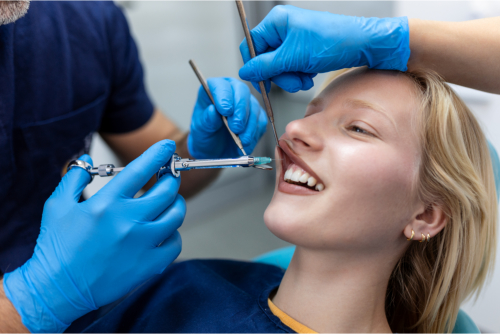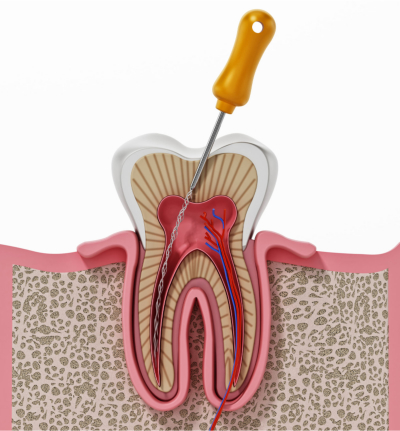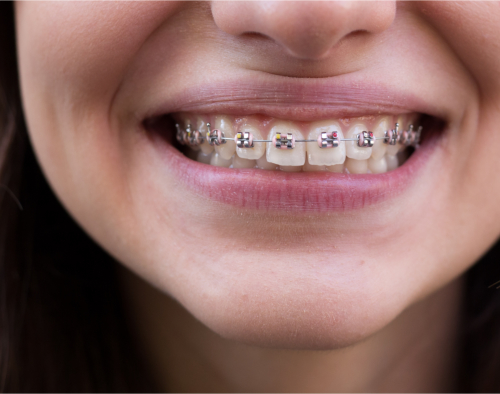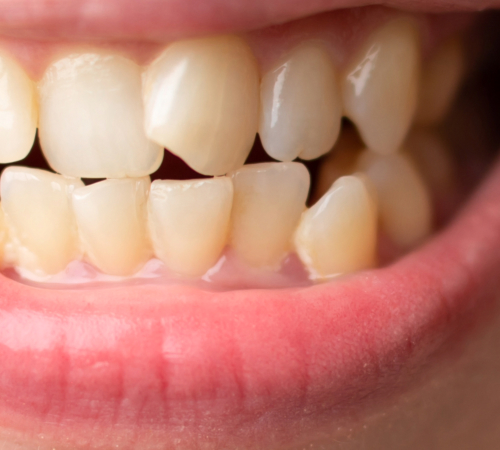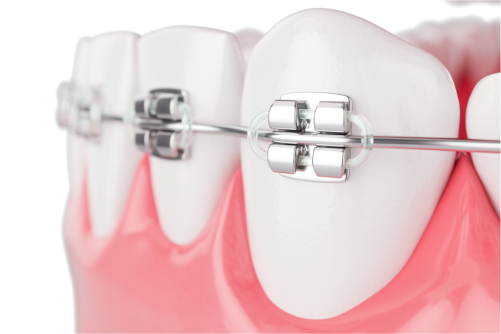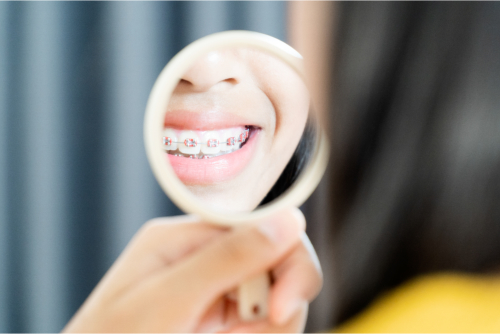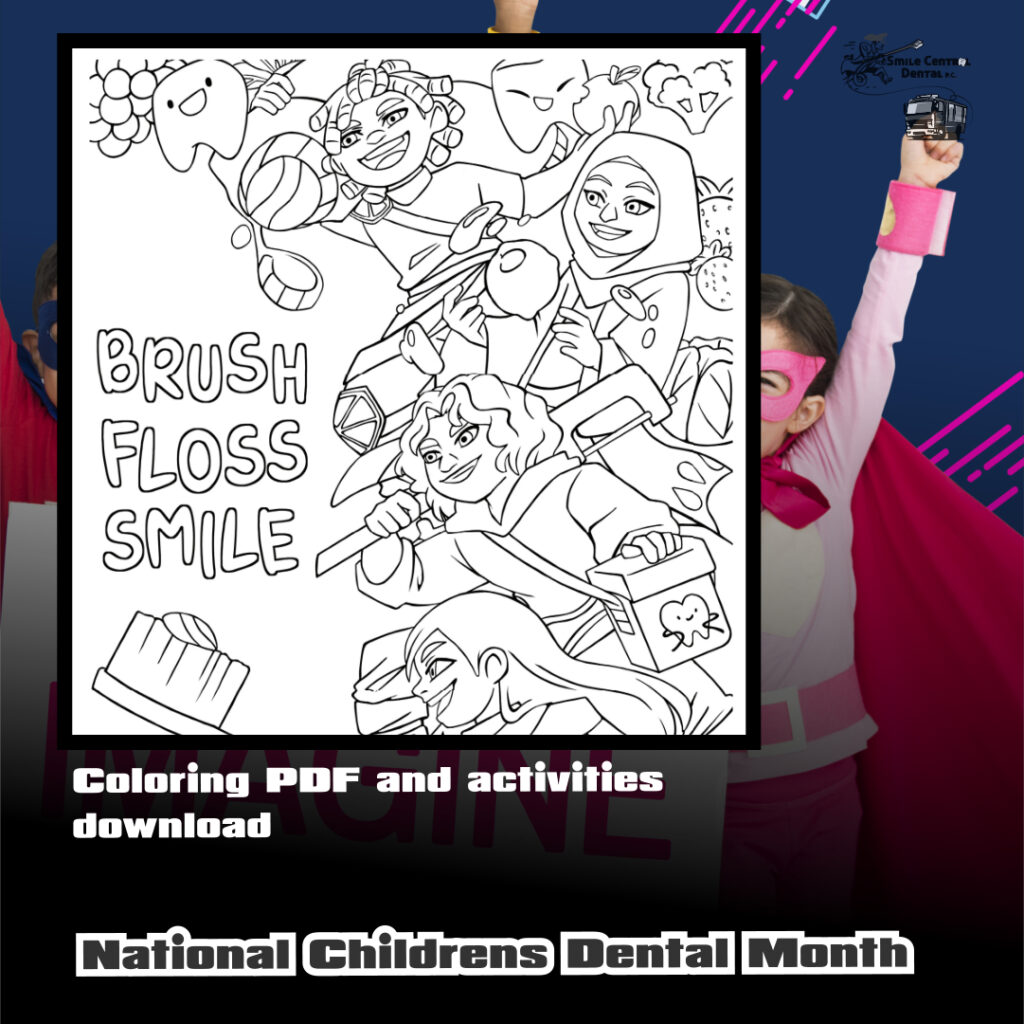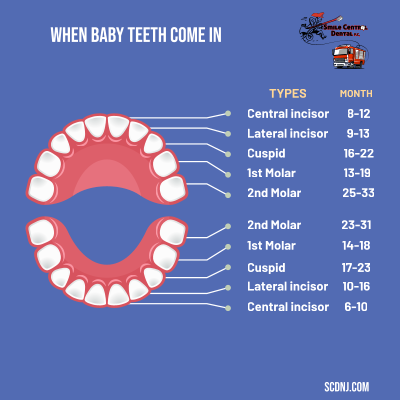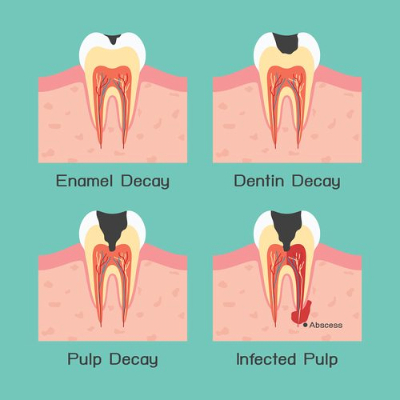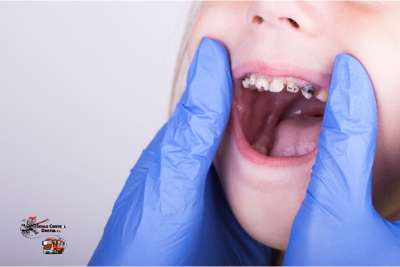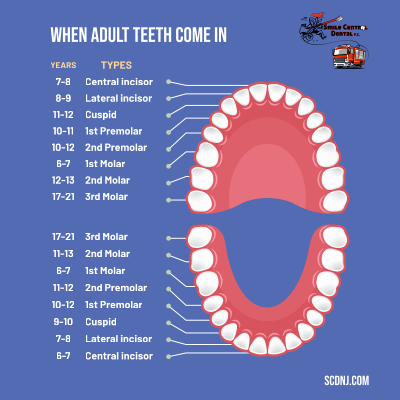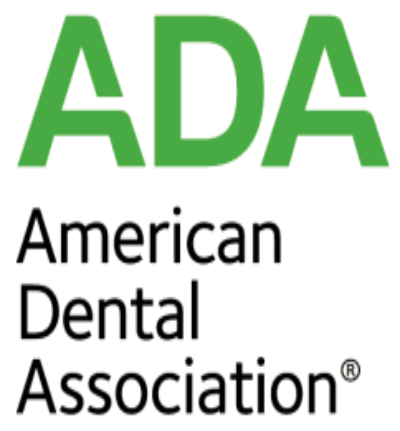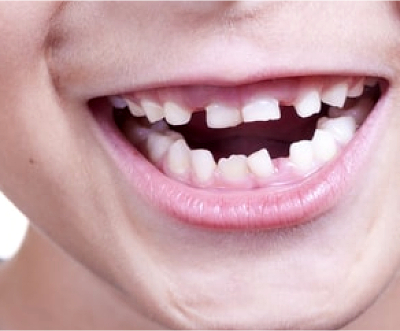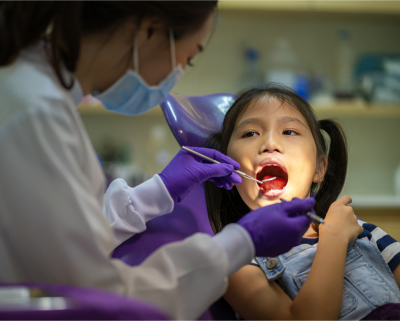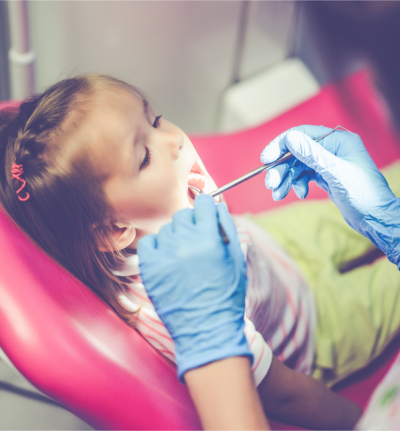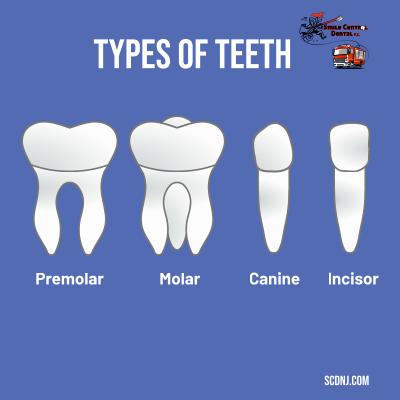The average American spends 38.5 total days brushing their teeth over a lifetime.
People who drink 3 or more glasses of soda each day have 62% more tooth decay, fillings and tooth loss than others. Put down the pop and sports drinks and pick up some nice fresh water instead.
Tooth enamel is the hardest substance in the human body. However, we do not recommend that you use your pearly whites to open bottle caps!
If you don’t floss, you miss cleaning 40% of your tooth surfaces. Make sure you brush and floss twice a day!
If you're right handed, you will chew your food on your right side. If you're left handed, you will tend to chew your food on your left side.
Every year, kids in North America spend close to half a million dollars on chewing gum.
More people use blue toothbrushes than red ones.
Like fingerprints, everyone's tongue print is different
The average woman smiles 62 times a day. The average man smiles about 8 times a day.
Kids laugh around 400 times a day, adults just 15 times a day.
Giraffes only have bottom teeth.
Giraffes: Only have bottom teeth. This is why it looks like they have such a big upper lip.
Just like finger prints, tooth prints are unique to each individual.
The average person only brushes for 45 to 70 seconds a day, the recommended amount of time is 2-3 minutes.
78% of Americans have had at least 1 cavity by age 17.
1882 was the year commercial floss was first manufactured.
The most valuable tooth belonged to Sir Isaac Newton. In 1816 one of his teeth was sold in London for $3,633, or in today's terms $35,700. The tooth was set in a ring! (source: Guinness World Records 2002).
More than 300 types of bacteria make up dental plaque.
Dogs have 42 teeth, cats have 30 teeth, pigs have 44 teeth, and an armadillo has 104 teeth.
A snail's mouth is no larger than the head of a pin, but it can have over 25,000 teeth!
The elephant grinds its molars and grows new ones. This happens six times in a lifetime! An elephant's molar is about 7 inches square and can weigh over 6 pounds
The Blue Whale is the largest mammal on earth, but it eats only tiny shrimp because it has no teeth.

The Crocodile Bird flies into the open mouth of a crocodile and cleans the crocodile's teeth!
There are 10-12 teaspoons of sugar in a single can of soda.
Interesting Facts about Dental History
In 1866, Lucy Beaman Hobbs became the first licensed female dentist.
In 1986, the winner of the National Spelling Bee won by spelling ODONTALGIA (which means toothache)

The average amount of money left by the tooth fairy in 1950 was 25 cents. In 1988 it was $1.00, the going rate now is $2.00.
The earliest dentist is known by the name Hesy-Ra. He lived in Egypt over 5,000 years ago.

The first toothbrushes were tree twigs. Chewing on the tips of the twigs spread out the fibers, which were then used to clean the teeth.
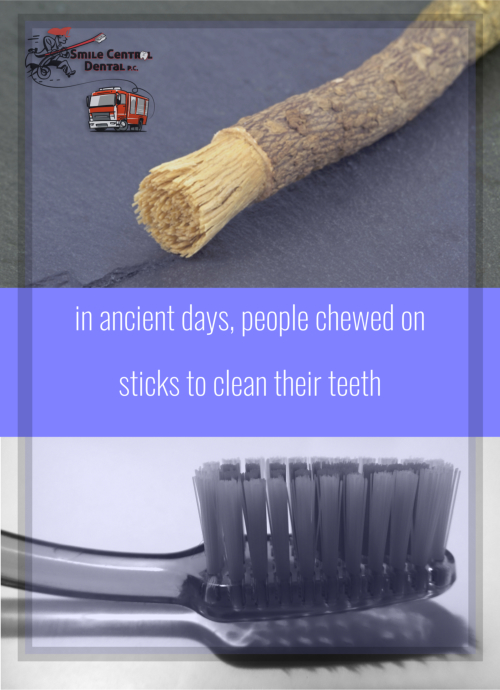
Ancient Greeks used pumice, talc, alabaster, coral powder or iron rust as toothpaste.
George Washington never had wooden teeth. His dentures were made from gold, hippopotamus tusk, elephant ivory and human teeth!
In 1905, Dental Assistant Irene Newman was trained to clean teeth. She became the first Dental Hygienist.

Between 60 and 90 percent of school children have at least one dental cavity
Nearly 100 percent of adults have at least one dental cavity
Between 15 and 20 percent of adults ages 35 to 44 have severe gum disease
About 30 percent of people around the world ages 65 to 74 don’t have any natural teeth left
In most countries, out of every 100,000 people, there are between 1 and 10 cases of oral cancer
The burden of oral disease is much higher in poor or disadvantaged population groups
Nasa is responsible for the alloy made for the first wires used to make braces.

We are here serving Paterson, Passaic, and Hudson NJ,
Dover NJ, and the surrounding communities.
We offer comprehensive oral health
services ranging from routine cleanings to emergency treatment.
We are committed to creating a warm, welcoming environment
to keep all members of the family comfortable in the office.
Paterson (973) 742-4200
Passaic ( 973) 574-1000
Union City (201) 325-8444
Dover (973) 891-4015
Find reviews and updates on Facebook,
learn more about our practice online,
or give us a call



